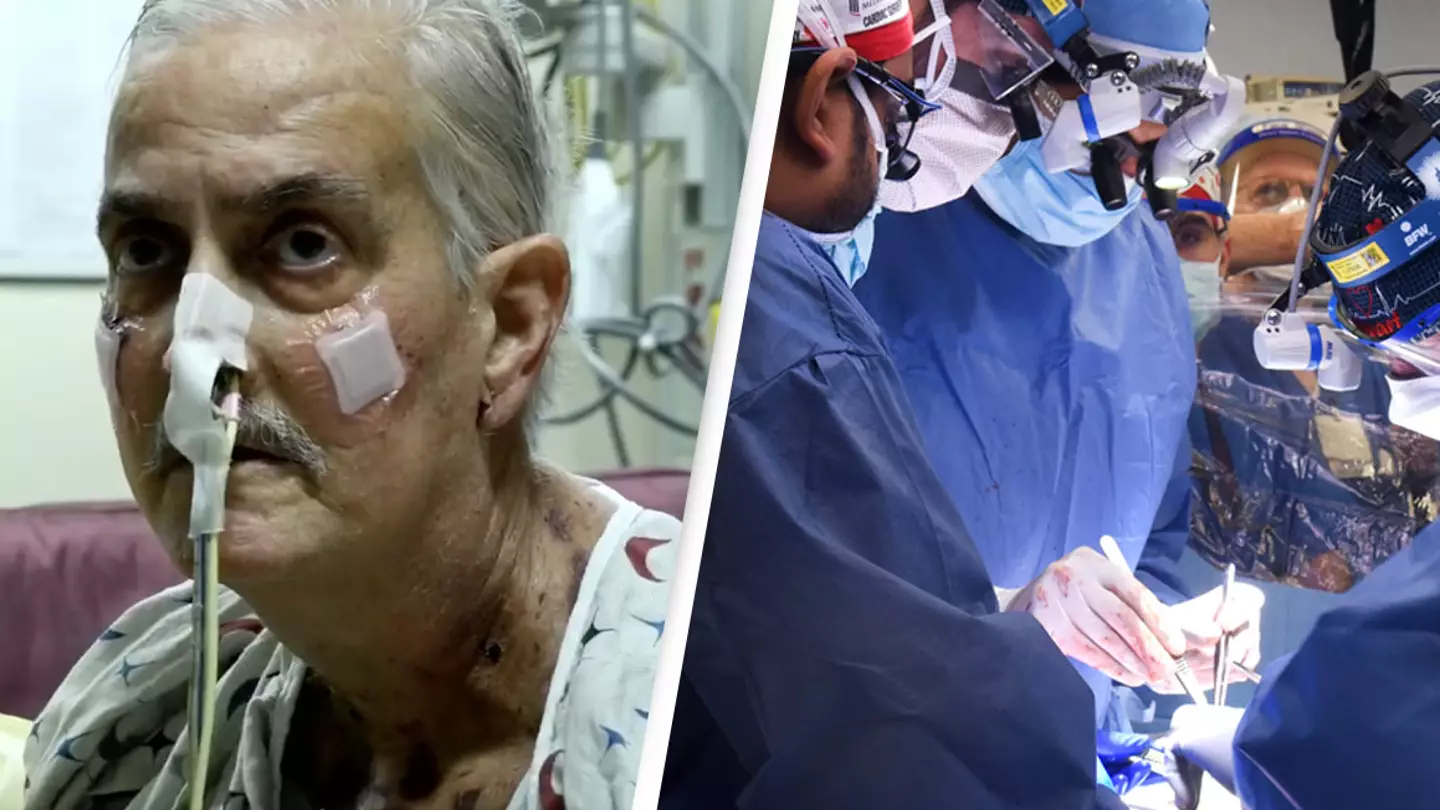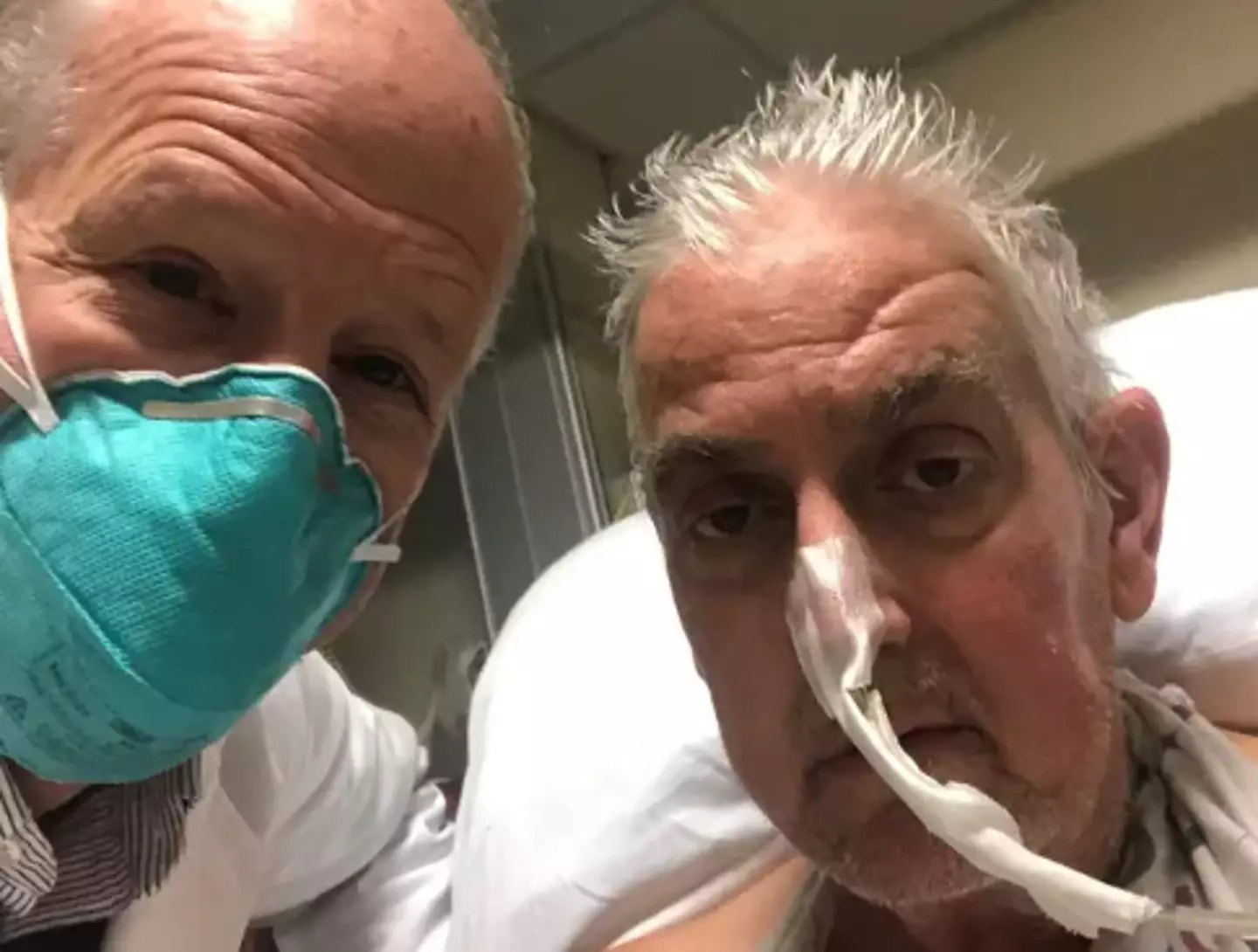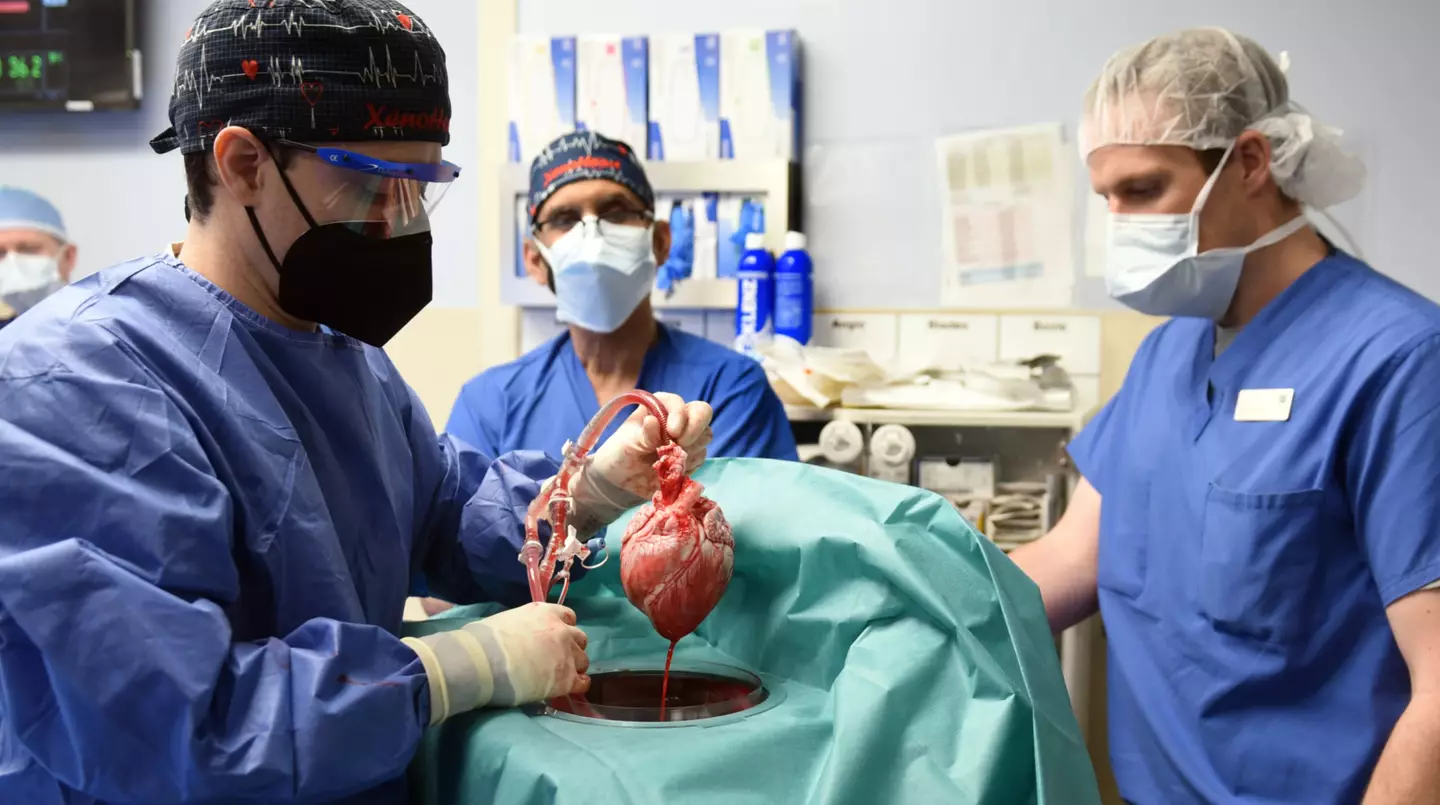
Warning: Article contains images some readers may find upsetting
A man who died just two months after receiving the first ever heart transplant from a pig may have been infected with a virus that came from the host pig, a new report has found.
David Bennett, 57, died on March 8 shortly after becoming the first person in history to undergo a xenotransplantation - the transplantation of living cells, tissues or organs from one species to another - with doctors baffled by the seeming lack of any clear causes of death.
Mr Bennett, who was diagnosed with terminal heart disease, had previously undergone the ground-breaking experimental surgery in January. Doctors replaced his heart with one from a gene-edited pig, modifying the animal to remove genes that could trigger hyper-fast organ rejection and replacing them with human genes that would help the body accept the new heart.
Advert

The operation appeared to be a big success at first, with Mr. Bennett being able to sit upright in his bed at the University of Maryland School of Medicine shortly afterwards. His transplant surgeon Bartley Griffith claimed his new heart was pumping fantastically and performing like a 'rock star' just days prior to his death.
But around 40 days after the operation took place, Mr Bennett’s condition began to deteriorate rapidly as he started to take a turn for the worse. Just a few days later, he died suddenly for seemingly no reason, leaving his family devastated and doctors confused as to what caused the sudden downturn in his health.
But in a new report by the MIT Technology Review, published on 4 May, it has been suggested that Mr. Bennett’s new heart could possibly have been infected by a pig virus called ‘porcine cytomegalovirus’, a preventable infection that can lead to devastating effects on transplant recipients.

If true, the presence of the porcine cytomegalovirus represents a huge unforeseen error on the part of scientists, given that the donor pigs were supposed to be raised in a specially-monitored disease-free environment and were screened for any possible viruses on numerous occasions.
The biotechnology company that raised and engineered the pigs, Revivicor, declined to comment and has made no public statement about the virus.
“It was surprising. That pig is supposed to be clean of all pig pathogens, and this is a significant one,” says Mike Curtis, CEO of eGenesis, a competing company that is also breeding pigs for transplant organs.
“Without the virus, would Mr Bennett have lived? We don’t know, but the infection didn’t help. It likely contributed to the failure.”
However, although tragic, the detection of the pig virus in Mr Bennett's heart is not necessarily all bad news for xenotransplantation. If a pig virus played a role in his death, it could mean a virus-free heart xenotransplant could last much longer.
Some surgeons believe that the latest gene-modified organs could theoretically keep beating for years- and more rigorous procedures should be able to screen out the virus in future cases.
“If this was an infection, we can likely prevent it in the future,” Griffith said during an online presentation on the subject.
If you have experienced a bereavement and would like to speak with someone in confidence contact Cruse Bereavement Care via their national helpline on 0808 808 1677
Topics: World News, Health, Science
